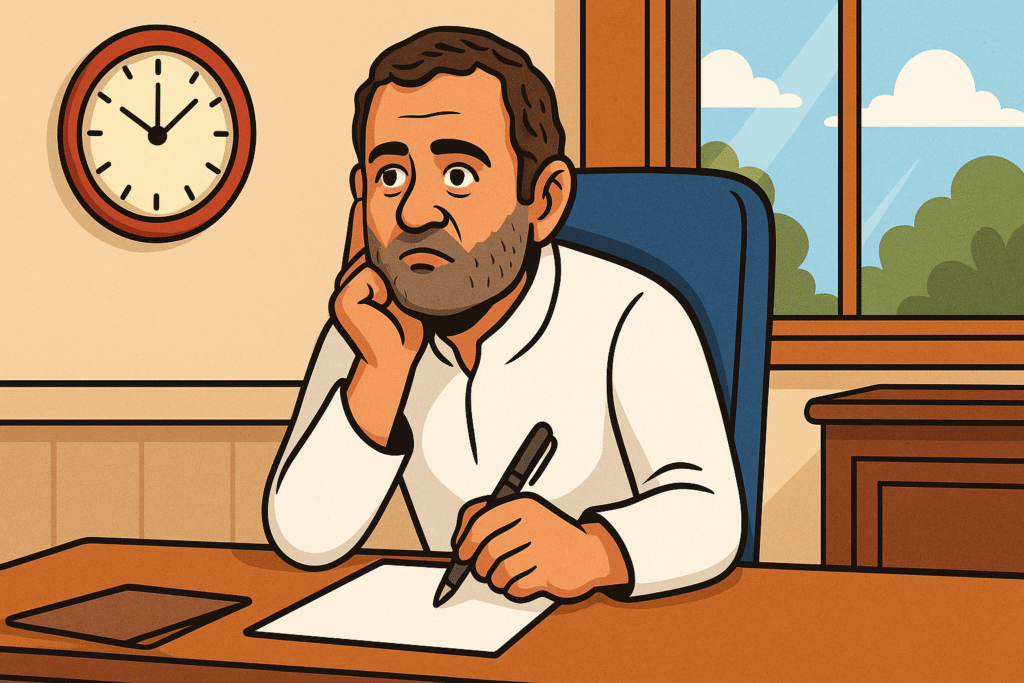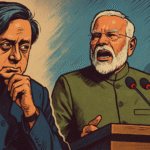CEC Gyanesh Kumar faces a storm over 65 lakh deleted voters in Bihar. A witty yet insightful take on facts, politics, and the drama behind the headlines.
What’s faster than a food delivery app promising “30 minutes or free”?
Apparently, the Election Commission under Gyanesh Kumar, which managed to upload details of 65 lakh deleted voters in Bihar in just 56 hours after the Supreme Court’s order. Talk about turbo mode!
But while this speed would make even express trains jealous, the story is more than just record timing—it’s about democracy, accountability, and the ever-sizzling mix of politics and controversy in India.
So, grab your chai and samosa—because this tale is both crunchy and spicy.
Who is Gyanesh Kumar?
First things first. Gyanesh Kumar, the Chief Election Commissioner (CEC), is no ordinary bureaucrat. He’s the man currently holding one of the most powerful chairs in India—the one responsible for ensuring free and fair elections in the world’s largest democracy.
If democracy were cricket, he’s basically the umpire with the power to declare “Out!” or “Not Out!”—and naturally, everyone has their eyes on his every move.
For context, check this detailed profile on India’s Election Commission from PRS Legislative Research .
The Bihar Voter List Drama
The heart of the controversy? 65 lakh voters’ names vanished from Bihar’s electoral rolls. Yes, you read that right—six and a half million people. That’s more than the population of entire countries like Denmark or Finland!
The Supreme Court stepped in, ordered action, and the EC, led by Gyanesh Kumar, responded with lightning speed. Within just 56 hours, the deleted voter data was uploaded for public scrutiny.
Now, some called it efficiency. Others raised eyebrows—wondering if democracy was being reduced to a database management exercise.
Why So Many Voters?
The obvious question: how can 65 lakh voters suddenly disappear?
- Migration? Bihar is known for massive out-migration, but 65 lakh seems way too high.
- Duplicates? Sure, cleaning rolls is important, but this number could fill multiple Eden Gardens stadiums.
- Political manoeuvring? Critics believe this could swing results in key constituencies.
Either way, the EC claims the clean-up was essential for accurate elections. Fair enough, but people are demanding transparency like never before.
Gyanesh Kumar’s Balancing Act
Being the CEC isn’t about smiling at cameras and waving from an AC office. It’s about:
- Managing the political heat—because every action is seen as favouring one side or the other.
- Handling public trust—citizens expect absolute fairness.
- Facing Supreme Court scrutiny—where deadlines come like sudden exam dates.
And in this case, Kumar had to walk the fine line of efficiency and credibility.
What Makes This Case Different
Normally, voter list clean-ups are slow, boring affairs—like cleaning old files in your cupboard. But this time, with media glare, opposition accusations, and court orders, it turned into prime-time masala.
The sheer scale—65 lakh names in one state—has made this an election talking point across India.
Politics, Suspense, and the Blame Game
No Indian political controversy is complete without drama.
- Opposition parties allege that genuine voters, especially from marginalized communities, have been struck off.
- The ruling side insists it’s just a routine clean-up to prevent fraud.
- The public is left scratching their heads, wondering if their vote is still alive or deleted like an unwanted WhatsApp message.
And through it all, Gyanesh Kumar remains in the spotlight, calm but firm, insisting that rules were followed.
Speed vs. Scrutiny
Here’s the real irony: when the government usually takes months to fix a pothole, the EC uploaded millions of entries in two days flat.
Efficiency? Yes.
Transparency? That’s the debate.
And honestly, in a democracy, both matter equally.
Why This Matters Beyond Bihar
Think this is just Bihar’s issue? Think again.
If this kind of voter deletion can happen at such scale in one state, it raises questions across India. With elections being the soul of democracy, the Bihar case sets a precedent for other states too.
As the saying goes—“What happens in Bihar doesn’t stay in Bihar.”
The People’s Angle
For ordinary voters, this isn’t about legal jargon or political battles. It’s about the simple right to vote. Imagine standing in line on election day only to be told: “Sorry, your name’s not on the list.”
That’s like preparing for an exam all year and being told your name isn’t on the attendance sheet.
No wonder citizens are demanding clarity.
“In India, even your Aadhaar card may not guarantee your vote—but at least the Election Commission uploads things faster than Zomato delivers biryani.”
Authoritative References
These links give you deep insight into the functioning of the EC and court directives on elections.
This story is far from over. Will Gyanesh Kumar emerge as the hero who streamlined the system, or the official remembered for a controversy that dented trust?
👉 What do you think—was this efficiency or political trickery?
Drop your thoughts in the comments, share this blog with friends, and let’s keep the debate alive. After all, democracy thrives on discussion.
Related Post
“Rahul Gandhi, Affidavit, and the 7-Day Countdown” – another spicy political drama you can’t ignore.













